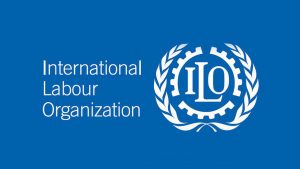ILO workplace violence rules to guide bilateral labor deal review

BILATERAL labor agreements will need to be updated in compliance with the Senate’s ratification of the International Labor Organization (ILO) convention on workplace violence and harassment, the Department of Migrant Workers (DMW) said.
Speaking to reporters this week, Assistant Secretary Jerome A. Alcantara said the ratification of the ILO Convention 190 of 2019 requires parties to take concrete action against workplace harassment and violence, which covers those working overseas.
“It does not stop with just signing a treaty, and releasing press releases. What is crucial are the accompanying concrete action we need to take because of its ratification,” he said.
The Senate unanimously ratified the convention on Monday, making the Philippines the first Asian country to affirm the treaty.
Mr. Alcantara told BusinessWorld that bilateral agreements should be updated to bring them in compliance with the convention, starting with agreements due to expire next year.
“One of the main pillars of the mandate of DMW is to negotiate better conditions for our workers; and in those negotiations, we are bound by our international obligations,” he said.
Labor groups also expressed their support for the ratification, urging the government to align labor policy with ILO norms.
The Trade Union Congress of the Philippines President and Party-list Representative Raymond Democrito C. Mendoza, who filed a resolution calling for the ratification of the ILO convention, urged government, businesses, and civil society to do their part in ensuring its effective implementation.
“This international agreement is a testament to the commitment of the global community to eradicate violence and harassment in all its forms, emphasizing the importance of fostering environments that prioritize the well-being and dignity of all workers,” he said in a statement.
“The ratification of C190 comes at a crucial time when our workers continue to be subjected to various forms of violence and harassment, including physical violence, psychological violence, sexual abuse and economic violence committed by various state and non-state offenders,” the Public Services Labor Independent Confederation said in a statement. — Jomel R. Paguian




